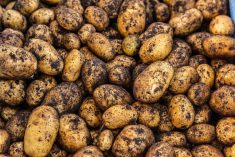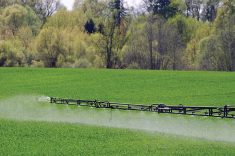Europe’s livestock industry will face hefty losses next year if the EU continues to ban tiny amounts of unapproved biotech material in imports, industry groups have warned.
While the EU has approved a string of genetically modified products – mainly maize types – by default rubber stamps since 2004, it does not permit the presence of other GMOs, even in minute amounts, until EU approval for that product is granted.
Coupled with high grain prices earlier this year, that situation hit the livestock industry especially hard in 2007-08, to the tune of 2.5 billion euros ($3.41 billion), said the three groups representing the EU livestock, cereals and feed sectors.
Read Also

Mazergroup’s Bob Mazer dies
Mazergroup’s Bob Mazer, who helped grow his family’s company into a string of farm equipment dealerships and the main dealer for New Holland machinery in Saskatchewan and Manitoba, died July 6 from cancer.
While poor grain harvests in 2007 had caused the main supply difficulties, the EU’s inability to import feedstuffs from around the world also had a significant cost impact, they said.
“The situation will get worse, with new GM soya varieties grown for seed multiplication in 2008 for commercialization in 2009 as a stark warning,” they said, warning that the EU livestock industry might face a massive loss of competitiveness.
“As the EU livestock production declines, then imports will increase. Ironically these imports would have been fed these non-approved GM products,” they said in a statement.
The statement was issued by Coceral, the EU’s main cereals trade lobby, the EU animal feed manufacturers federation FEFAC, and UECBV, the European livestock and meat trading union.
FEFAC, for example, has long been pushing for the European Commission to do something about the EU’s “zero tolerance” of as yet unauthorized GMOs so that the problem of trace amounts of non-approved soy or maize is avoided.
While the commission, the EU executive, has said it will find a technical solution to what is known as “low-level presence,” nothing has yet happened.
Green groups, which are lobbying hard for the EU not to change its position on unauthorized GMOs, say such dire warnings are little more than industry scare-mongering designed to foist more biotech products onto European markets.
Since the EU’s three main country suppliers of soy, an ideal high-protein raw material for feed, mainly grow GM varieties, non-biotech soy has become increasingly difficult to source for the European Union’s manufacturers of animal feed.
Those countries are Argentina, Brazil and the United States.


















